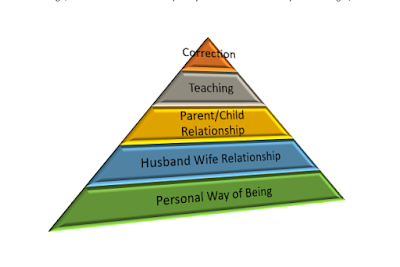On Parenting- a Personal Journey
Last Christmas, I resolved to not buy Christmas presents for my boys ever again. my hard work and thoughtful effort to engage them in something other than video games ended up sitting in the garage collecting dust. Besides, Christmas is about the birth of our Savior and learning to be like Him while sharing His light with others. Still, I changed my mind, and I've been racking my brain and asking questions to get ideas, ideas that would make my children happy and meet my approval.
On the way home from my son’s
Winter Concert, I wove the questions into our conversation. That did not go so
well. He wanted a gaming PC. I attempted without success to motivate him to get
good grades to earn that PC. His responses included, “I hate you.” “You only
want to ruin my life. You want to take away my opportunity to have fun.” And
more subtly, “You should go kill yourself. You’re the worst parent ever.” After
several futile attempts to reason with him, to encourage him to believe in his
abilities, I utilized what I learned from a book on parenting: I acknowledged that he was upset; I told him that he
shouldn’t say harsh things like that, and I told him that we weren’t going to
talk about this anymore right now. He huffed in agreement and quietened, and we
drove home in pleasant conversation with the rest of our family. A few months
ago, this would have ended very badly. I
would have raised my voice in anger, and he would have responded with a terrible
temper tantrum, kicking the seats and screaming more insults.
According to The Arbinger Company
(1998), “The solution to a problem in one part of the pyramid lies below that
part of the pyramid. It all boils down to who we are as individuals, and
encompasses our beliefs, values, likes, dislikes, circumstances and everything
that makes us the way we are. Our personal way of being affects our behavior
with our spouses. That influences the type of relationship we have with our
children. The relationship we have with our children affects the effectiveness
of our teachings. When we invest more effort in our parent-child relationship, it
becomes easier for our children to learn from us. It follows naturally that
less time is needed for correction; we can rest assured that we’ve done a good
job at helping our children develop into people we can admire, trust and support.
Self-Care
Almost two years to date, I ran out
of a sacrament meeting and fell to my knees on the sidewalk sobbing, “I can’t
do this anymore.” My 10 and 12-year-old sons were sitting on both sides of me
in the chapel when they began fighting and arguing with each other. My pleas
for them to be reverent and stop fighting were largely ignored and they became
louder. Embarrassed and at my wits end, I ran. Up to that point, I was taking
seven credits in school, working full-time, and serving as the primary
president. As a single mother, this left little time for my children; I largely
neglected teaching them. I largely neglected spending time with them.
I began therapy a week later.
There, I learned an eternal truth: my therapist pointed out that there is only
100% of me. If I gave all of me to work and school, then I had nothing to give
to my children. I was running on fumes by the time I arrived home, with no
reserves for the bickering between my children. As Romney (1982) pointed out,
“How can we give if there is nothing there?” “Support and understanding cannot
come from the emotionally starved. Teaching cannot come form the unlearned.” My
basic need of enough sleep was not being met, nor was I refueling my tank in
any way; there was no time for giving back to me. How then could I nurture
children who were begging for my attention in a way that was sure to make me
take note of them, albeit with negative behavior and consequences?
As parents, it is our
responsibility to teach our children and help them grow into respectful,
reliable, decent human beings. It is our responsibility to teach them with
love, patience and compassion. Children learn by experience and by example. As
members of The Church of Jesus Christ of Latter-Day Saints, it is required of
us to set aside the natural man; to be patient, gentle, long-suffering and most
importantly, loving, in all our interactions with our children. It requires us
to change our personal way of being, and to become more like our Savior, Jesus
Christ. As I have made changes in my personal way of being, taking better care
of myself, and seeking knowledge to help me become a better parent, I have seen
wonderful changes in my relationship with my children and improvements in their
behaviors as well.
References
Arbinger. (1998). The parenting
pyramid. Retrieved from: https://content.byui.edu/file/91e7c911-20c5-4b9f-b8fc-9e4b1b37b6fc/1/Parenting_Pyramid_article.pdf
Faber, A. and Mazlish, E. (2012). How to talk so kids will listen & listen,
so kids will talk. New York, NY: Simon & Schuster, Inc.
Romney, M.G., (1982). The celestial
nature of self-reliance. General Conference. Welfare Session.
Retrieved from https://www.lds.org/general-conference/1982/10/the-celestial-nature-of-self-reliance?lang=eng


Comments
Post a Comment